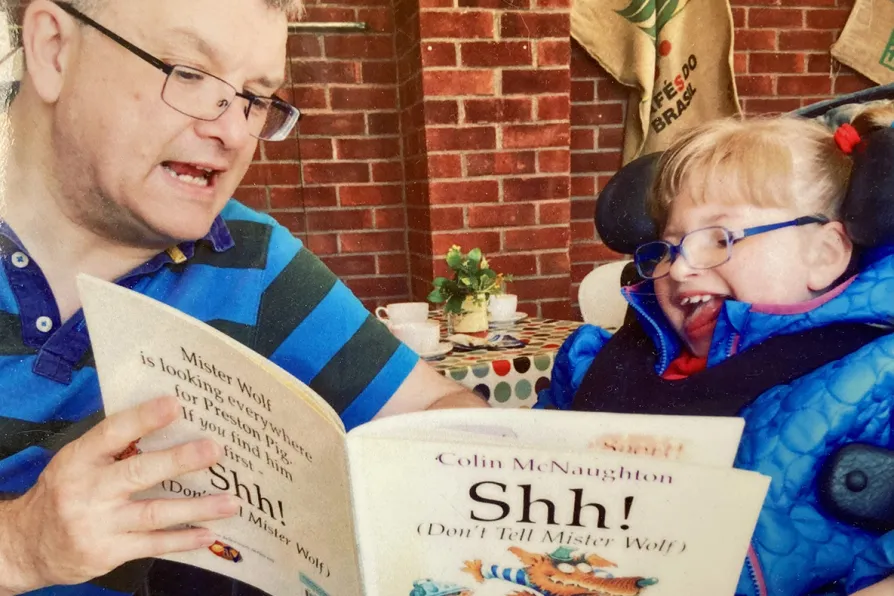‘We're drowning’ - Half of disabled households pushed into debt by cost-of-living-crisis

 Nick and his 13-year-old daughter Rhia have been pushed further into debt due to rising costs. Rhia has a metabolic condition called PDH which is life limiting and she is registered deaf and blind. The family’s debt has been getting worse as costs have been rising.
Nick and his 13-year-old daughter Rhia have been pushed further into debt due to rising costs. Rhia has a metabolic condition called PDH which is life limiting and she is registered deaf and blind. The family’s debt has been getting worse as costs have been rising.
MORE than half of disabled households in Britain have been pushed into debt amid the cost-of-living crisis, the charity Sense says.
Over a third of these households — 38 per cent — say they are skipping meals to save money, while 64 per cent reported having to make difficult choices including choosing between eating or heating, according to a poll of 2,008 carers and people with disabilities.
Sense, which supports people who have complex disabilities, said its research reveals the “desperate everyday reality” for them as the cost of living soars; government support packages will only offer temporary relief for struggling households, it added.
Similar stories

The economic value of disability benefits far outweighs their cost, argues Dr DYLAN MURPHY













